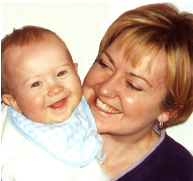The Child as Poison Container
Lloyd deMause
...There are two main psychological mechanisms that operate in all cases of child assault_physical, sexual or psychological. They involve using the child as what I have termed a poison container, a receptacle into which one can project disowned parts of one's psyche, so that one can manipulate and control these feelings in another body without danger to one's self. Psychoanalysts since Klein have termed this primitive projection process "projective identification," but the term is so unwieldy that I have begun to use the word "injection" instead, following the image of injecting poison with a syringe... Likewise, the "reversal reaction" is familiar to students of battering parents. Children only exist to satisfy parental needs, and it is always the failure of the child-as-parent to give love which triggers the actual battering.
As one battering mother put it: "I have never felt loved all my life. When the baby was born, I thought he would love me. When he cried, it meant he didn't love me. So I hit him."... The baby is expected to cleanse the mother of her depression, fears and anger and be her poison container.
Parents who use their children as poison containers are actually addicted to them, since they solve so many of their intrapsychic problems through manipulation of their children... In fact, the children are indulging the parents, who use the children as "comfort blankets," poison containers into which they can inject their unhappiness, fear and anger.
Using children as scapegoats to relieve personal internal conflict has proved an extremely effective way to maintain our collective psychological homeostasis.
Ultimately, of course, the ending of child assault, like the ending of wars and depressions, will only come when each adult has experienced enough love in their family of origin to make the use of children as poison containers unnecessary.
Truly empathic love for children in the sense of wanting them to grow up as independent individuals is actually a late historical acquisition..
Lloyd deMause is Director of the Institute for Psychohistory, Editor of the Journal of Psychohistory and founding President of The International Psychohistorical Association. He edited the book The History of Childhood ISBN 06131848-5, in 1974.
